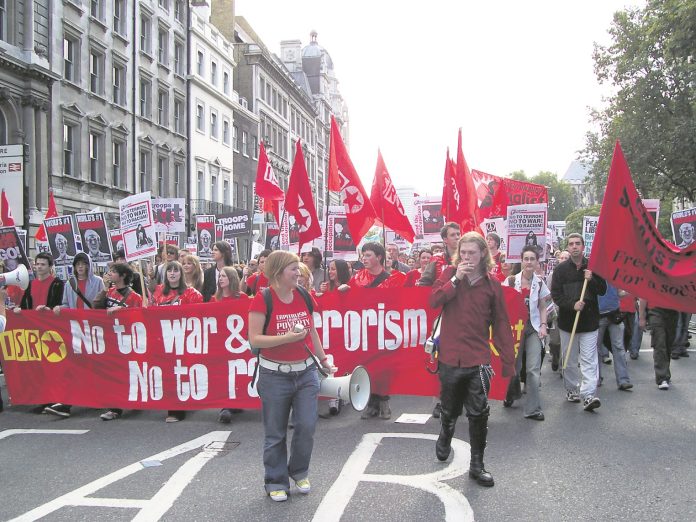Joe Fathallah, Cardiff East Socialist Party
I joined the Socialist Party twenty years ago as a first-year student at the University of Glamorgan. The political situation was dominated by the impending invasion of Iraq. US imperialism aimed to overthrow the rogue Saddam Hussein regime, to regain economic control and political influence in an important region for capitalism. Tony Blair, who spent the 1990s destroying what remained of the Labour Party, converting it into an out-and-out pro-capitalist party, threw in his lot with US president George Bush.
The total death toll of the invasion and consequent occupation is unclear, but some estimates exceed one million. Since the invasion, Iraq has been ruled by a series of corrupt pro-capitalist regimes, offering nothing but poverty and insecurity to working-class people in the region.
My late father was an Iraqi, an engineer from Baghdad, who fled the repression of the Saddam regime to settle in Britain. As a child, I met many Iraqis and heard stories about the horrors of the dictatorship – as well as some who my parents didn’t speak about politics with at all! Saddam, while running a repressive police state, did have some base of support among a section of the working and middle classes in and around Baghdad, due to some advancements made in areas such as health and education, off the back of the country’s huge oil wealth.
The world in 2002-03 felt unstable and frightening. Hate and fear was being whipped up against Arabs and Muslims, used by imperialism to justify its adventures in Afghanistan and Iraq. I understood the character of the coming war – a mission to install a compliant regime in Baghdad and guarantee American companies lucrative contracts for ‘reconstruction’, and access to the oil industry. But I couldn’t work out what we could do about it, or what the alternative was.
Soon after arriving at university, I saw a poster advertising a Socialist Students meeting, campaigning against the war in Iraq. The analysis I heard there made sense to me and filled in some gaps I had in my mind. A democratic socialist society, run by and for the working class, could distribute resources where required, as opposed to capitalist wars fighting over access to them.
I started attending local Socialist Party branch meetings and discussing these ideas further. How would socialism work? How can we achieve it? I didn’t want to sign on the dotted line until I had confidence in the ideas and the organisation.
I attended the 3 million-strong demonstration against the war in London on 15 February 2003, my first-ever large protest. I felt the huge potential power of the anti-war movement, but how could this power be used? The Socialist Party called for a general strike against the war, and for the anti-war movement to launch a political party in opposition to the pro-capitalist and pro-war New Labour. Nobody else made these demands, which could have given us victory. At that point I knew that I wanted to join the Socialist Party.
The Socialist Party understood the power of the working class to change society. I became more confident, arguing for these ideas, campaigning on the streets alongside more experienced members, and supporting workers in struggle, such as the firefighters taking strike action at the time.
The anti-war movement failed to stop the war. But the war did expose the nature of capitalism and imperialism, and steel a new generation of class fighters. Some of the members in my branch today weren’t born when these events took place and, while I hope they can learn something from my experiences, I’m learning a lot from them too! If you want to fight against war, imperialism and capitalism, join the Socialist Party today!







